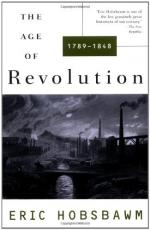|
This section contains 297 words (approx. 1 page at 400 words per page) |

|
Nationalism Summary and Analysis
Another turning point after 1830, Hobsbawm argues, is the idea of a "self-conscious" nationalism, first among some of the fraternal revolutionary groups and then among the educated middle class. While the uneducated masses may identify themselves with local traditions, they are not the source of national movements. Hobsbawm claims. It is among the educated middle classes and the universities where native-language publications are published and circulated, which contribute to the development of a national identity. Only in Ireland, Hobsbawm claims, does any national movement based in the masses occur.
There are incidents of revolt against "alien-rule" in this period, Hobsbawm explains, mainly of a religious nature. He does not consider these national movements, however, nor did they claim to be. Hobsbawm gives special attention to one movement which he does feel combines a nationalism based in the middle classes with the revolutionary...
(read more from the Nationalism Summary)
|
This section contains 297 words (approx. 1 page at 400 words per page) |

|




